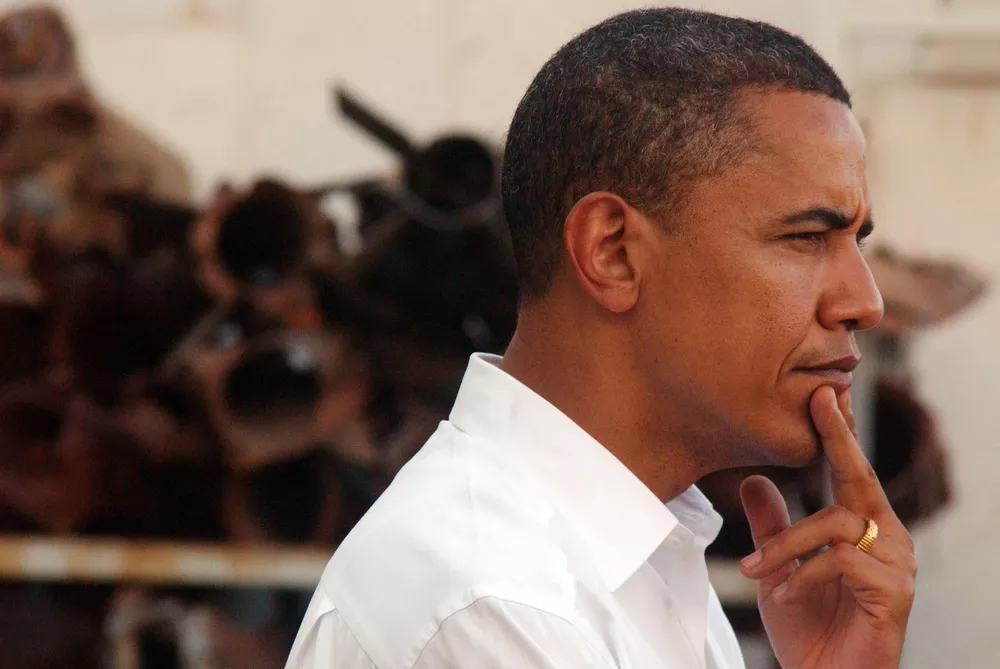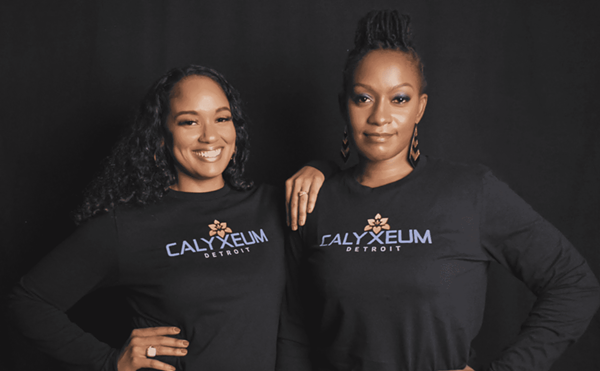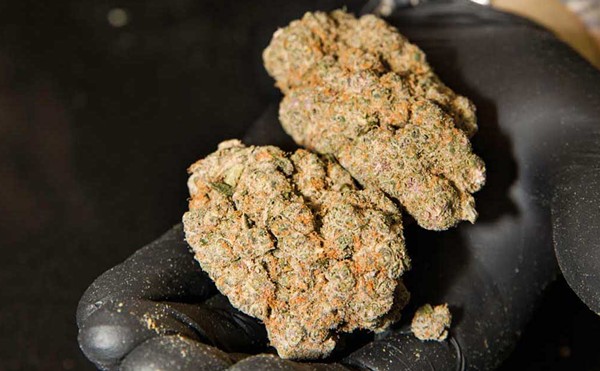The public debate over marijuana has finally reached the highest levels in our government. President Obama, in an interview that ran in The New Yorker, said that while he believed marijuana use is a “bad habit and a vice,” he doesn’t “think it is more dangerous than alcohol.”
That was certainly a shot over the bow against the War on Drugs; hopefully it moves us closer to sensible policies about marijuana.
“We were absolutely delighted that he finally came out with a positive statement, an accurate statement,” says Heidi Parikh, director of Michigan Compassion, a federal nonprofit focused on education about medical marijuana. “We hope he moves forward in the direction, that he’ll reschedule it before the end of his term.”
Parikh is referring to the single biggest impediment to research on the medical effects of marijuana and reforming laws: That marijuana is listed as a Schedule One drug with “no accepted medical use.” This classification basically keeps medical and scientific research on marijuana from moving forward expeditiously.
Parikh also admits that Obama’s statement could have been more accurate: “We know it’s actually healthier than alcohol. That statement was a start to at least recognizing that marijuana doesn’t have more danger than alcohol.”
Of course there was pushback against what Obama said. One of the loudest opposing voices was that of MSNBC talking head Chris Matthews, who generally supports Obama’s political positions. That wasn’t the case on this subject. Matthews did a show featuring guests Patrick Kennedy and his cousin Christopher Kennedy Lawford. Patrick Kennedy directs the anti-legalization organization Smart Approaches to Marijuana.
Matthews’ objection is that he thinks “people have addictive personalities and some people react to freedom differently than others, and we better be ready for it because it’s coming now.”
Whatever that means.
His second reason is, uh, sort of like the first. “I think dope, marijuana, makes you sort of vague out, and sort of lose interest in tomorrow, two weeks from now, two months from now,” he said.
Incisive, data-based reasoning like this could lead me to believe that Matthews had been tippling a bit before doing his show. But that is the kind of thinking that the drug war propaganda has encouraged. Matthews is a newsman whose Hardball program is about cutting through the BS and getting the facts. Some people do vegetate while under the influence of the herb. So I guess he wouldn’t consider the evidence of admitted pot users such as Obama, Bill Clinton, Oprah Winfrey, John Kerry, George Soros, Bill Gates, George W. Bush, Rand Paul, Sanjay Gupta, Rush Limbaugh (who has apparently also tried other substances recreationally), Lady Gaga, Brad Pitt, Martha Stewart … you can find the list of the 50 most influential marijuana users on the Marijuana Policy Project’s website. Even Snoop Dogg (aka Lion), a guy who based a large part of his image on being a pot smoker, has a pretty enviable profile. I don’t think these folks just vagued out and lost interest in their futures. The fact that many of them cited their marijuana use was in their past just reinforces the fact that the vast majority of marijuana users do not get dragged into the gutter by their use.
“I’ve actually seen it make more productive citizens of people,” Parikh says. “I’ve seen people who are alcoholics, people who drink very heavily; I’ve seen it before my eyes that when they start to ingest cannabis, the alcohol use is just reduced to nothing.”
When the Kennedy cousins appeared on Hardball, they also brought up the argument that today’s marijuana is much more potent than the marijuana folks smoked back in the day. That’s only partially true. In the 1960s there was always a range of potency in marijuana that went from crummy homegrown through Mexican dirt weed and on up to selected niche products, such as Colombian Gold, Panama Red, Hawaiian or Thai Stick.
By and large most folks were smoking Mexican back in the day. And some marijuana defenders say that today’s claim of more powerful marijuana is based on crummy Mexican tested decades ago. But even then something more potent came down the pike once in a while, or if you had a few extra bucks for a special occasion you might invest in some Hawaiian.
Selective breeding (not “genetically modified” as Patrick called it) has developed many strains with higher THC levels, and more recently, higher CBD (the cannabinoid for seizure reduction) levels. The high-quality stuff has always been around. It’s just that now there happens to be more of it because indoor growers can control growing conditions. The average for THC levels has moved up, but it’s not the night-and-day scenario that naysayers claim — and if it is, well, the better to medicate with.
There’s a very simple fix for dealing with marijuana that is very potent: use less. I've grown wary of comparing marijuana to alcohol, but since Obama brought it up, I will. In the case of alcohol use, you can drink a lot of beer, which has a low, somewhere around 5-proof, alcohol content. However, when you get 80-proof rum, you drink it a little bit at a time from a tiny glass.
That’s common-sense dose control.
As we go along this path, we are learning more about how to deal with marijuana socially. When I was about 19 years old, my father sat me down and talked to me about alcohol. He gave me some pointers on managing it if I was going to get involved with it. That’s one of the things missing when it comes to marijuana use. Society’s official stance has been the ineffective “just say no.” That leaves no space for constructive engagement with the substance.
It’s the same thing on the medical side of marijuana. Most doctors just have no education about it. That’s one area where Michigan Compassion has stepped into the breach. They recently gave a presentation to nursing and pre-med students at Calvin College.
“Whether you agree with it or not, people are using it recreationally now in Colorado and Washington,” Parikh says. “As physicians, you are going to be seeing these people. You need to know what it does.”
More government movement: It wasn’t just Obama speaking up positively about marijuana law reform recently. Texas Gov. Rick Perry, a presumed Republican candidate for president in 2016, touted his “policies that start us toward a decriminalization” of marijuana at the World Economic Forum last week. Similarly, embattled Republican New Jersey Governor Chris Christie referred to ending the failed war on drugs in his State of the State address. Also, Attorney General Eric Holder announced that new regulations that allow banks to do business with legal marijuana shops are in the works. Banks have avoided doing business with legal dispensaries in medical marijuana states due to fear of getting charged under money-laundering laws, but licensed pot retailers in Colorado have forced the feds to clear up the issue. This is a next step in marijuana business development, because it opens up banking and loan services to prospective ganjapreneurs.
So to quote an old Merle Haggard tune, “Have you ever been down to Colorado? I spend a lot of time there in my mind.”







